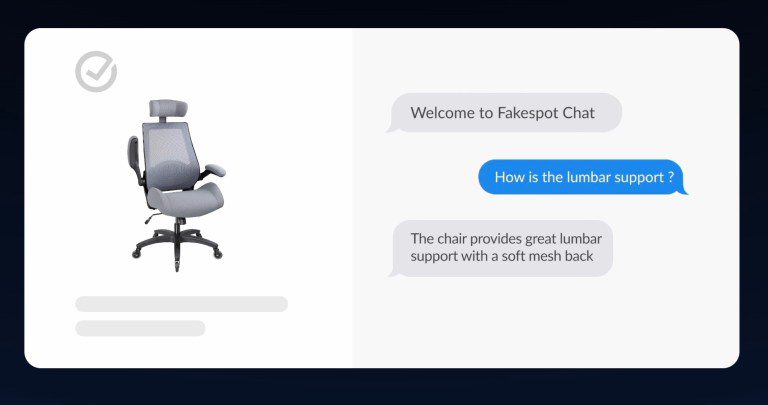TL;DR:
- Mozilla’s Fakespot Chat, an AI-powered assistant, aims to combat fake online reviews.
- It assists consumers by answering product-related questions and suggesting research queries.
- The initiative responds to the rise of AI-generated fake reviews, which have become a significant issue in the industry.
- Fakespot’s previous AI features, like Pros and Cons, have already improved product research.
- Users can access Fakespot Chat through the Fakespot Analyzer or its browser extension on Amazon.com.
Main AI News:
In the realm of online shopping, the battle against fake reviews has taken a new turn with Mozilla’s latest venture. Following its acquisition of Fakespot, a startup proficient in employing AI and machine learning to identify deceptive product reviews, Mozilla introduced Fakespot Chat—an innovative AI agent designed to assist consumers in their online shopping endeavors. This digital assistant not only answers product-related queries but also suggests questions to enhance your product research.
The irony of employing AI to combat fake reviews, often crafted using AI technology like GPT, is not lost in this scenario. A substantial number of Amazon product reviews, for instance, were evidently generated using ChatGPT, marked by the telltale phrase, “As an AI language model.” TripAdvisor also confronted a similar issue, removing thousands of reviews believed to contain AI-generated content. The U.S. Federal Trade Commission has even proposed a rule to tackle fake product reviews, citing AI as a complicating factor.
However, Fakespot’s mission is to utilize AI, including generative AI, to foster trust in the online shopping process. They introduced a feature called Pros and Cons, powered by generative AI, which eliminates the need for extensive review reading by summarizing a product’s strengths and weaknesses. This feature was trained on a vast dataset, leveraging five distinct models.
Fakespot Chat has now entered the testing phase, enabling shoppers to interact with an AI chatbot just as they would seek assistance from a salesperson in a physical store. Leveraging AI and machine learning, the chatbot distinguishes between genuine and fake product reviews to provide users with accurate answers. Notably, user data from these chat sessions is utilized to enhance the overall experience, with no need for users to create accounts or disclose personal information.
The functionality is accessible through the Fakespot Analyzer or Fakespot’s browser extension on Amazon.com. Users can either paste the product URL into the analyzer or utilize the browser add-on for automatic analysis. Once the analysis is complete, Fakespot Chat becomes available alongside other features, such as Pros and Cons, Review Grades, and Highlights, assisting users in making informed purchase decisions.
This innovation aligns with Mozilla’s broader AI initiatives, including a $30 million commitment to establishing Mozilla.ai—a community and startup focused on building an independent open-source AI ecosystem. Additionally, Mozilla hosted the Responsible AI Challenge, encouraging developers to create trustworthy AI solutions and compete for prize money.
Mozilla acknowledges that Fakespot Chat may not always be flawless and encourages user feedback to refine its capabilities. Saoud Khalifah, Founder and Director of Fakespot at Mozilla, underscores the goal of Fakespot Chat: to streamline product research and guide consumers toward informed purchasing decisions.
Conclusion:
Mozilla’s Fakespot Chat signifies a significant step in addressing the issue of fake reviews in online shopping. By harnessing AI and machine learning, it offers consumers a valuable tool to make informed purchasing decisions. This development reflects the growing importance of AI-driven solutions in the market, where trust and authenticity play a pivotal role in shaping consumer choices.

